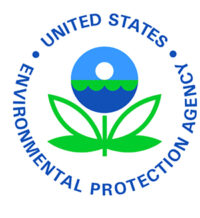WASHINGTON-Today, May 9, the President’s Task Force on Environmental Health Risks and Safety Risks to Children is publishing
the Progress Report on the Federal Lead Action Plan, a comprehensive update on the government’s progress since 2018 toward reducing childhood lead exposures. The U.S. Department of Housing and Urban Development (HUD), the U.S. Environmental Protection Agency (EPA), and the U.S. Department of Health and Human Services (HHS), as co-leading members of the Task Force’s Lead Exposures Subcommittee, are leading aggressive actions to combat lead exposure.
“We’ve made excellent progress toward protecting children from the risks of lead exposure, advancing President Biden’s commitment to environmental justice and protections for all communities,” said EPA Deputy Administrator Janet McCabe. “The federal family has taken meaningful steps that will reduce lead exposure, and we are united in our commitment to improve children’s health and to ensure that populations overburdened with pollution have the opportunity to lead healthier lives.”
“Children are our future. We must ensure that they have safe places to learn and grow. This progress report outlines the steps we are taking to ensure that healthier future by reducing childhood exposure to lead and shows the Biden-Harris commitment to environmental justice and health equity for all,” said Assistant Secretary for Health Admiral Rachel Levine.
“Protecting the health of vulnerable populations, especially children and families with limited resources, is paramount. Our Task Force’s progress in implementing the Action Plan reflects the Biden-Harris administration’s shared commitment to investing resources in lead safety programs,” said HUD Acting Secretary Adrianne Todman. “The individual programs to implement Justice40 and additional administration initiatives are complemented by the many interagency activities described in the progress report.”
The 2018 Federal Lead Action Plan was released with a clear vision: to reduce childhood exposure to lead and its harmful effects. Since then, the federal government has been working to implement strategies outlined in the plan, and leveraging partnerships with states, Tribes, local communities, business, and caregivers to achieve this shared goal.
The progress report summarizes the significant strides made toward reducing lead exposure and improving children’s health through landmark initiatives including:
- Reducing lead in drinking water, land, air, food, housing, and consumer products,
- Improving childhood lead poisoning testing to improve children’s health outcomes,
- Enhancing lead hazard communication with partners and the public with streamlined messaging,
- Supporting critical research that informs efforts to reduce lead exposures and health risks, and much more.
The President’s Task Force is the focal point for the federal government to scope, plan, and act together for the betterment of children’s environmental health and safety. The Task Force engages multiple government departments, agencies, and other federal partners to coordinate efforts to address the array of environmental and social stressors that threaten the health of children, with particular focus on areas including lead exposures, asthma disparities, chemical exposures, climate change, emergencies, and disasters. These efforts have complemented the Biden-Harris Administration’s Lead Pipe and Paint Action Plan, which laid out over 15 new commitments from more than 10 federal agencies to make sure that the federal government marshals every resource and every tool it can to make rapid progress towards ensuring a lead-free future. These efforts have also complemented the President’s Justice40 Initiative, which set a goal that 40 percent of the overall benefits of certain federal investments flow to disadvantaged communities that are marginalized by underinvestment and overburdened by pollution.





